Publications
Articles, publications, books, tools and multimedia features from the U.S. Institute of Peace provide the latest news, analysis, research findings, practitioner guides and reports, all related to the conflict zones and issues that are at the center of the Institute’s work to prevent and reduce violent conflict.
Customary Law Plays Critical Role in Countries in Conflict, Experts Say
Existing systems of customary justice should be seen as a continuing and important part of international efforts to support justice reform in countries hit by conflict, a group of specialists said at the January 12 public launch of a book published by the United States Institute of Peace (USIP).
Promoting Legal Awareness in Afghanistan through Radio Programming
After traveling to Afghanistan to conduct an in-depth media evaluation, the Center is working with local partners to use edutainment to address the challenges of dealing with Afghanistan’s multiple informal and formal judicial sectors through a serial radio drama. The Center is also using new technology and radio to provide youth with the capability to inform others on legal issues and solutions.
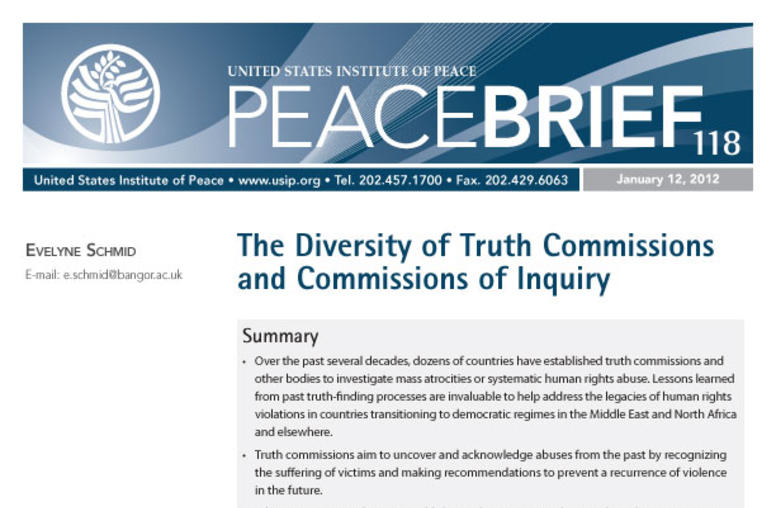
The Diversity of Truth Commissions and Commissions of Inquiry
Over the past several decades, dozens of countries have established truth commissions and other bodies to investigate mass atrocities or systematic human rights abuse. Lessons learned from past truth-finding processes are invaluable to help address the legacies of human rights violations in countries transitioning to democratic regimes in the Middle East and North Africa and elsewhere.
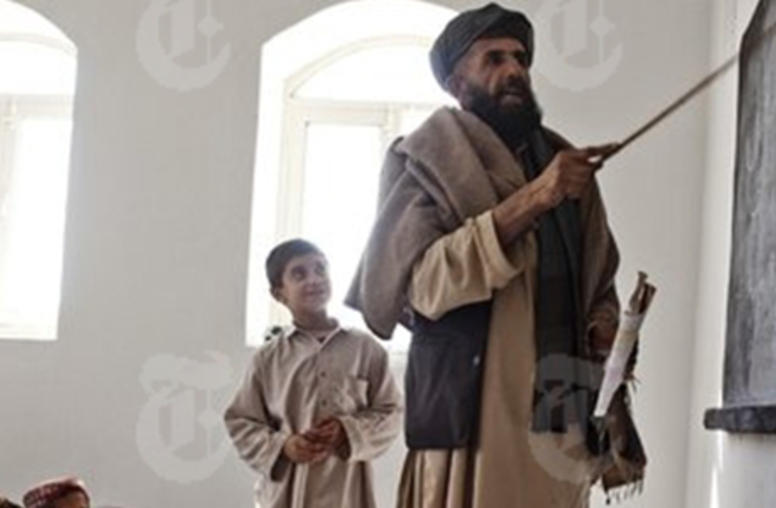
Year in Review: Afghanistan
USIP’s Afghanistan country director, Shahmahmood Miakhel, discusses the key events and issues of 2011, and what we should be looking out for in 2012, such as possible peace talks with the Taliban.
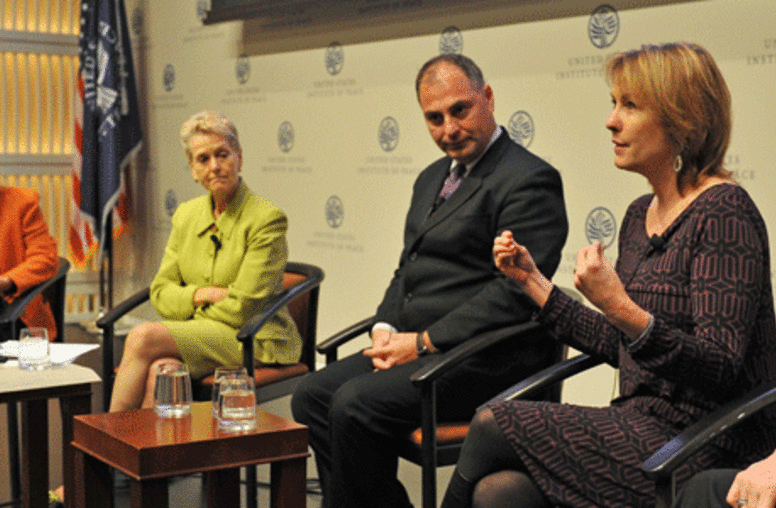
Gender and Peacebuilding: Highlights from 2011 and Looking Ahead to 2012
Gender and Peacebuilding Center Director, Kathleen Kuehnast, discusses USIP's focus on women's equality in 2011 and looks ahead at the gender projects USIP will work on in 2012.
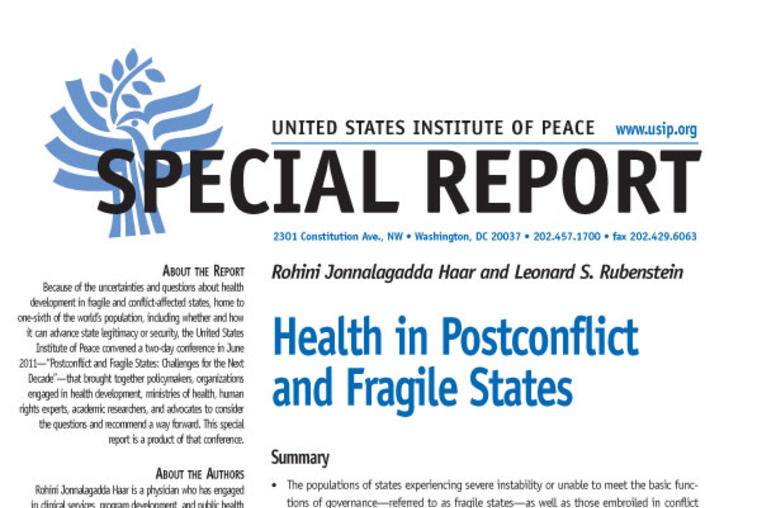
Health in Post-Conflict and Fragile States
Civilian health, health care workers, and health facilities disproportionately suffer in countries experiencing severe instability, but global health donors have yet to make developing health systems in such states a priority. Doing so could both make populations healthier and contribute to state legitimacy.
Universities for Ushahidi
The U4U training program brings young people from conflict zones around the world to train them in the use of crowdsourced mapping tools like Ushahidi as well as in the skills of conflict management, helping them address community needs in-country, train others, and join a growing community of global crisis mappers and technology-enabled peacebuilders.
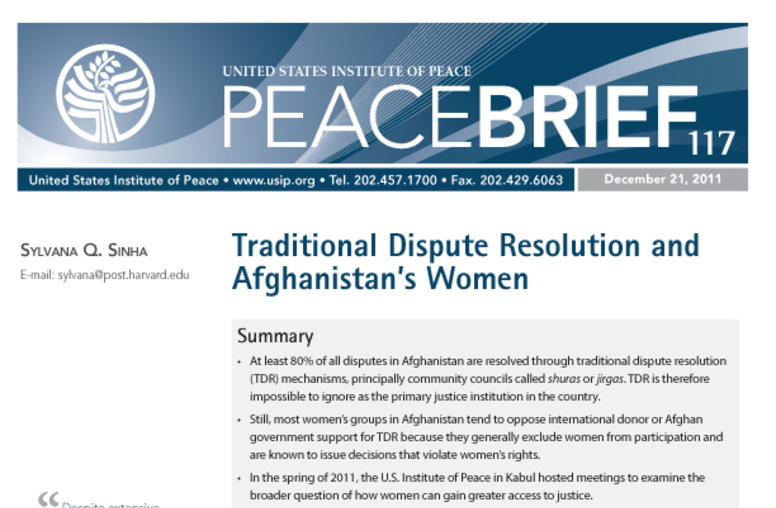
Traditional Dispute Resolution and Afghanistan’s Women
This brief is based on recent discussions USIP held in Kabul on traditional dispute resolution (TDR) and women’s rights. Based on these discussions and USIP’s research, it outlines recommendations on how to increase access to justice for women. Sylvana Q. Sinha served as rule of law adviser in USIP’s Kabul office from November 2010 to November 2011.
After 2014: Managing the Transition in Afghanistan
USIP hosted an event in which experts look at building the Afghan economy in anticipation of the big transition in 2014, when American and NATO forces will finish turning responsibility for the country's security to the Afghan government. It's also when, a new World Bank report suggests, the bulk of foreign assistance, now keeping the Afghan economy alive, will begin to dry up.
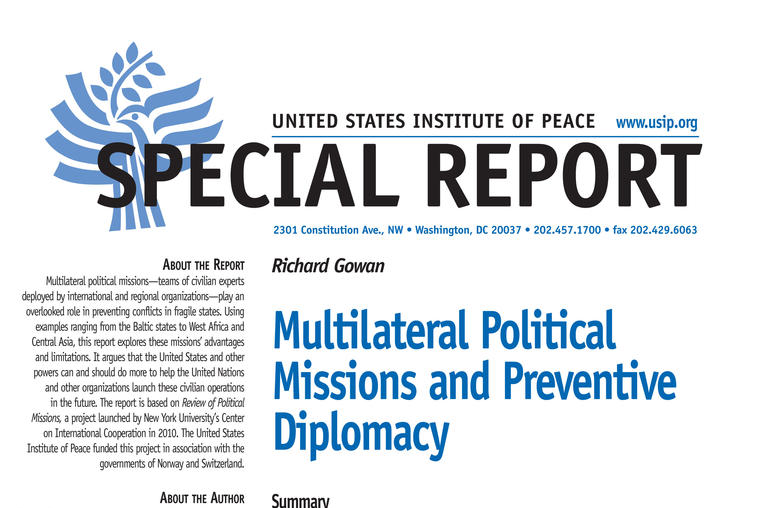
Multilateral Political Missions and Preventive Diplomacy
Multilateral teams can often bring a level of expertise and impartiality to preventing conflicts that other missions cannot. With a little more support, they can be an even better tool for conflict prevention. The report is based on Review of Political Missions, a project launched by New York University ’s Center on International Cooperation in 2010. The United States Institute of Peace funded this project in association with the governments of Norway and Switzerland.